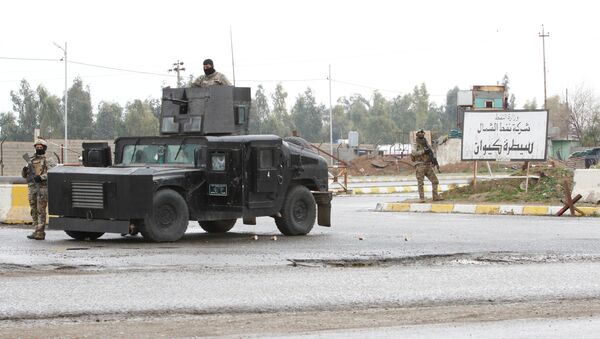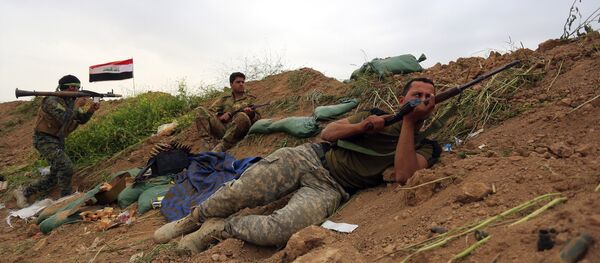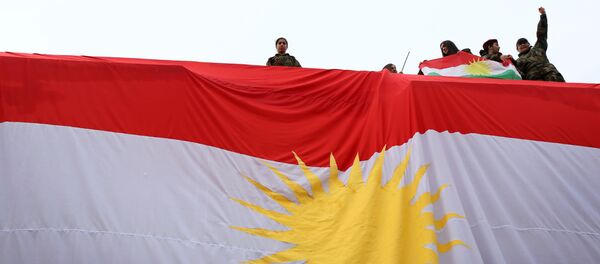The deal comes after the units of Iraqi Patriotic Union of Kurdistan (PUK) last week stormed the state-run North Oil Company (NOC) in Kirkuk, which resulted in briefly stopping oil exports in an effort to force Baghdad to meet its demand for a share of the revenue and add an extra processing unit to Kirkuk’s oil refinery.
The Kurdish group also called for the 2016 Kirkuk oil sharing deal between Baghdad and the Kurdistan region "to be canceled within a week."
The move was aimed at forcing Baghdad to commit to an earlier deal agreed between Kirkuk's governor and the Iraqi oil ministry.
In January, they signed a deal between the province and Baghdad which includes more investment in the oil sector in Kirkuk and employment opportunities for the local people.
Reports however suggested that Baghdad has not paid Kirkuk province its share of revenues from oil sold from its fields since 2013.
On Wednesday, Iraq's oil minister announced that they have added a processing unit to Kirkuk’s oil refinery which increases its capacity by 10,000 barrels a day.
Commenting on the developments, Tarik Jaugar, Advisor at the Regional Parliament of Kurdistan told Sputnik Arabic that the new processing units are needed to meet the needs and demands of the local residents. However if the central government does not deliver on its promises then the regional politicians will decide to stop oil exports from the province.
"Our people lately have not been tracking the fulfilment of these agreements due to the ongoing fighting against Daesh," he told Sputnik.
Meanwhile, Iraqi military analyst Kasi al-Muatasam expressed the view of the Iraqi central government.
"Today's developments are the result of the concessions of the former government," he told Sputnik.
"When back in 2010 then Prime Minister al-Maliki wanted to remain in power for the next term, he offered the leaders of Iraqi Kurdistan to get their share of the Kirkuk oil in exchange for their support of his candidacy in the elections," he explained.
Then, he said, an article 140 was added to the country's Constitution which was supposed to help the Kurds to anchor their right for Kirkuk. The Kurds do need this region as without it, they do not have any resources, the analyst further said. The region holds 5 per cent of the world's oil resources.
However he further noted that none of the parties are eager to retreat, hence there is every opportunity that it is going to grow into a prolonged conflict.
Never miss a story again — sign up to our Telegram channel and we'll keep you up to speed!





